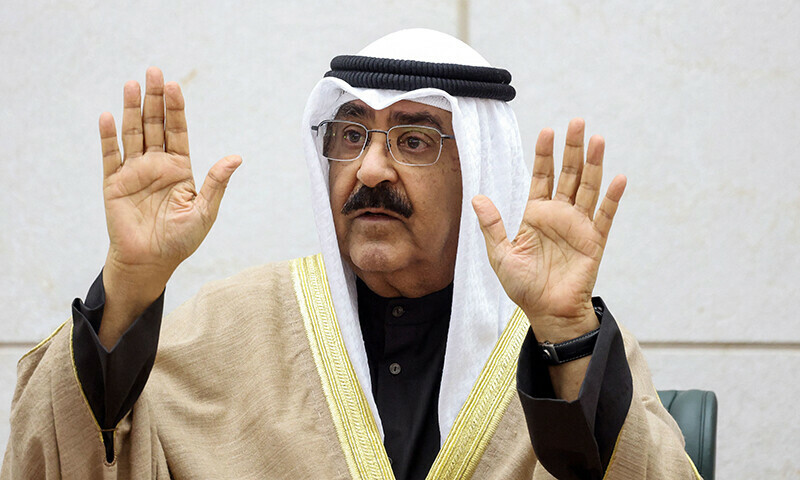Officially taking over from his half-brother Sheikh Nawaf, who passed away on Saturday, Sheikh Meshal is faced with the task of pulling the country out of longstanding political paralysis and reforming a bloated public sector that has turned Kuwait into one of the Gulf’s most laggard states.
The 83-year-old leader said to lawmakers after taking the oath of office, “I have stressed in my previous speeches that there are national obligations that must be fulfilled.”
He went on, though, saying that neither the parliament nor the cabinet had made any changes or corrections.
Rather, he claimed that the two organizations had “harmed the interests of the people and the country.”
During the brief reign of his predecessor, there was a protracted political impasse that resulted in multiple cabinet resignations and parliament dissolutions.
Sheikh Meshal further pointed to public appointments and promotions that “don’t meet the simplest standards of justice and fairness”.
He signed an order on December 5th directing a three-month stop to state hiring, with the option to extend it, and he promised to temporarily halt promotions and new hires.
“We have warned on many occasions that crises, challenges, and dangers surround us,” Sheikh Meshal said, underscoring “the necessity to reconsider our current reality in all its aspects.”.
Shortly after the speech, the government submitted its resignation in a procedural step to allow for the naming of a new prime minister.
Seven percent of the world’s crude reserves are found in Kuwait, which shares borders with both Saudi Arabia and Iraq. It has little debt and is one of the strongest sovereign wealth funds in the world.
However, it suffers from constant disputes between elected lawmakers and cabinets installed by the ruling Al-Sabah family, which maintains a strong grip over political life, despite a relatively robust parliamentary system in place since 1962.







